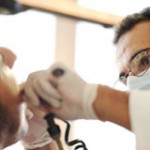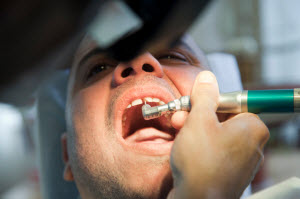Tooth Extractions: The Process Explained
If you need to have a tooth extracted, we will make sure that you are comfortable each step of the way. Although it may seem frightening, once you understand the process, you will see that it is pretty straight-forward. This should alleviate your concerns and let you focus on healing and maintaining your oral health.
The first step involves numbing the area. We will inject a small amount of local anesthesia into the gums. After a few minutes, we will perform a pain test. Additional applications may be done to ensure that you do not experience sharp pain during the procedure.
Next, we will use special tools to pull the tooth from the socket. At first, we will employ a rocking motion. Though some patients interpret this as difficulty in removing the tooth, that is not the case. When moving the tooth back and forth, it helps to expand the socket and make it easier to pull out.
The specific tools used during the extraction process will vary depending upon which tooth is being removed and the health and size of the remaining tooth. We may need to use more than one tool to further loosen the tooth and extract it cleanly.
You will feel some pressure during the procedure but should not experience pain. If for any reason you do, raise your hand to alert us and we will rectify the situation.
Once the tooth has been pulled, you will need to bite down on gauze until the bleeding has subsided. We will provide a prescription for pain medications or make recommendations for over-the-counter medicines depending upon your medical needs.
Make sure to follow our instructions regarding taking care of the area so that you do not experience a dry socket or other complication.

 If you are preparing to have your first
If you are preparing to have your first  The best way to avoid emergency dental appointments is to practice good dental hygiene and always remember to schedule and keep those routine checkups and teeth cleanings at least twice a year.
The best way to avoid emergency dental appointments is to practice good dental hygiene and always remember to schedule and keep those routine checkups and teeth cleanings at least twice a year. With our service you can be sure that we are going to tailor a treatment to your exact needs. We’re not in the business of giving everyone the same care because each set of teeth is different. Here are some examples of what we can do for people in an emergency.
With our service you can be sure that we are going to tailor a treatment to your exact needs. We’re not in the business of giving everyone the same care because each set of teeth is different. Here are some examples of what we can do for people in an emergency.